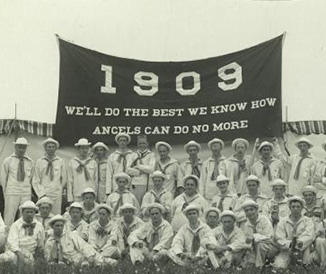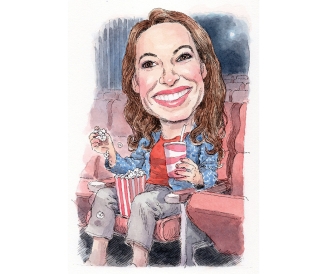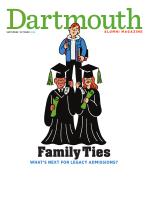No news from the class this month.
My daughter, Abby, attended her 40th reunion and I’ll paraphrase her thoughts about Dartmouth. The campus looked great. She had not visited the College for the last 10 years and was impressed with all the new buildings, including the athletic facilities, dorms, and educational buildings. Her good friend Mary Conley stayed at one of the newer dorms and was impressed with the bedrooms and particularly the nice common spaces. Abby toured the new Class of 1982 Engineering and Science Center and thought it was fabulous and with 160,000 square feet had space for effective communications between these two disciplines.
They went to listen to a talk by Dartmouth’s new president, Sian Beilock, who was only in her sixth day on the job. She covered a number of goals, one of which was to work with the faculty and students to encourage more debate. Instead of “safe spaces,” President Beilock wants to develop “brave spaces” where people feel comfortable and confident in debating ideas.
The golf course has been converted in part to Pine Park, which you can see on your website under PinePark.org. Abby walked on several well-maintained trails, one of which went down to and along the Connecticut River, circling back to what used to be the third tee near Occom Pond.
—Dave Kurr, 603 Mountain Ave., Apt. 331, New Providence, NJ 07974; (781) 801-6716; djkurr@verizon.net










